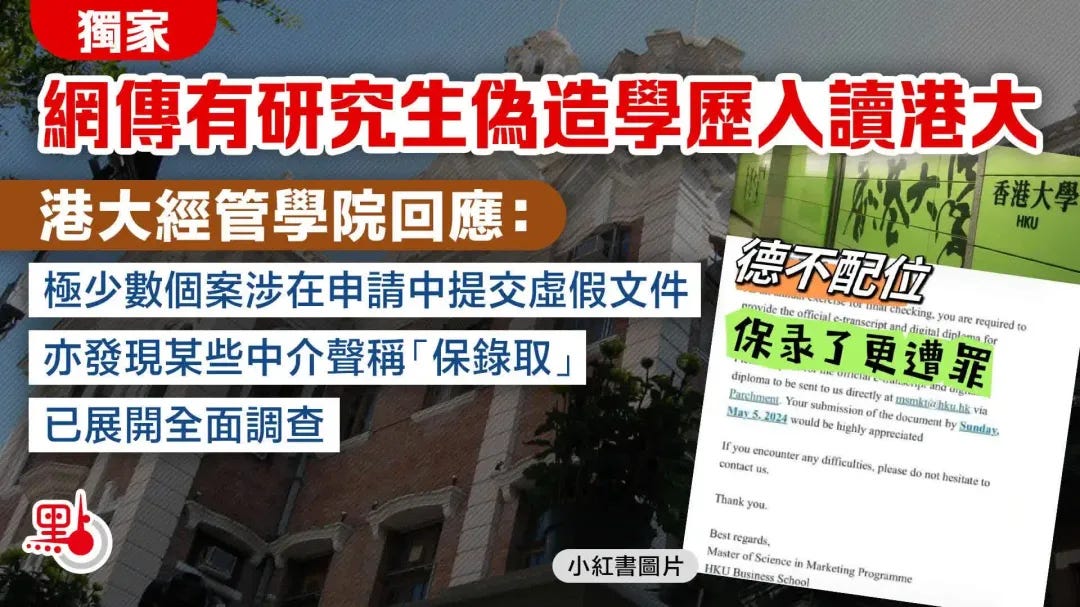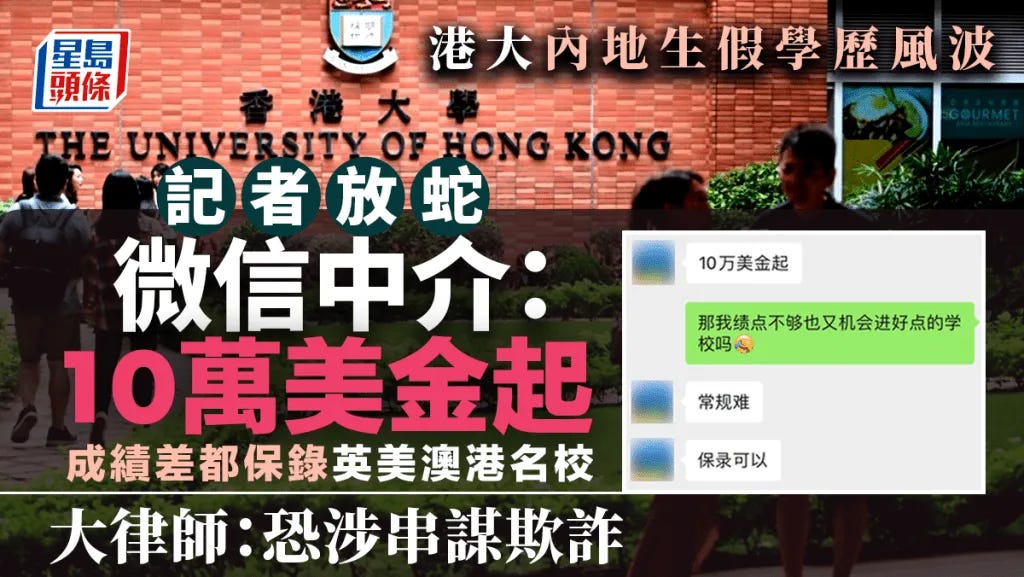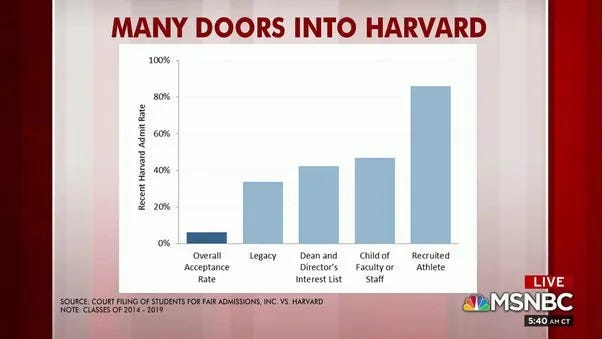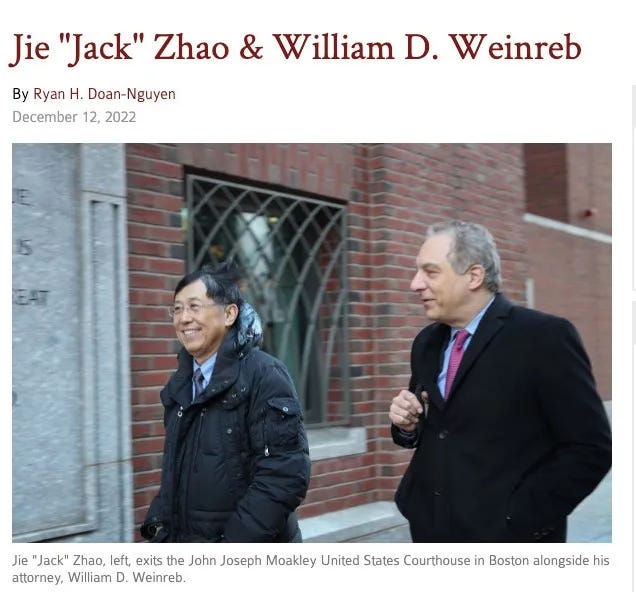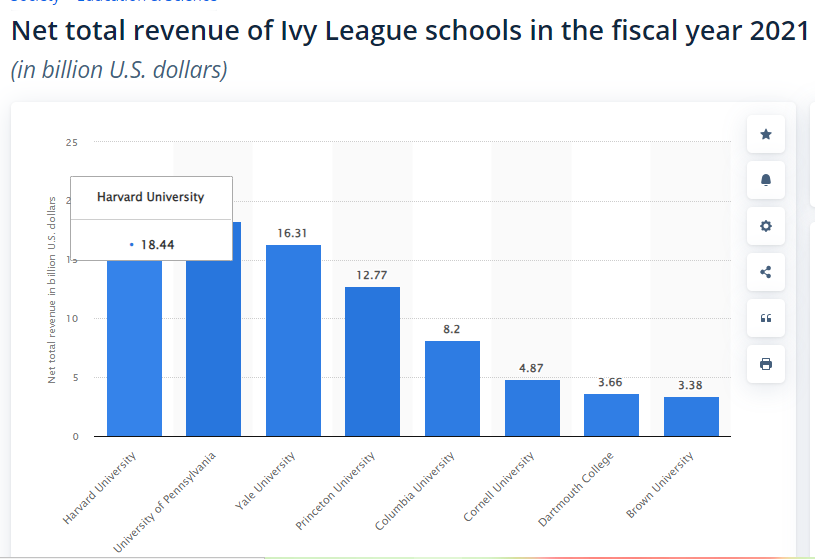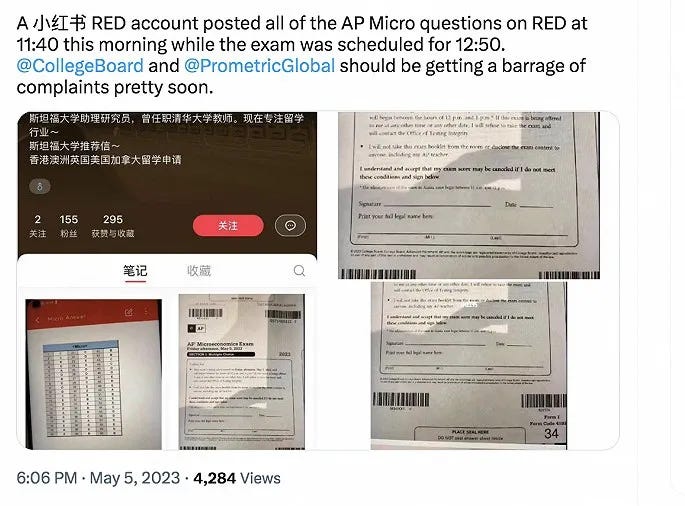Exposing the Chinese Guaranteed Admissions: The Frauds Undermining Education
The Impact of Academic Fraud on Students, Parents, and the Reputation of Prestigious Universities
A few days ago, a parent of an elementary school student asked me: "Is it true that you can secure admission to New York University in the U.S. with one million yuan?"
I was surprised to find out that the trend of guaranteed admissions, which we disdain so much, has already reached the homes of elementary school students. This might be the legendary "start targeting potential scam victims from a young age."
First, let me give a responsible conclusion: anyone who guarantees admission to a prestigious university with absolute certainty is 100% a scammer!
If you choose the path of guaranteed admission because of the dream of attending a prestigious school, there's a high chance that your money will be wasted and end up in someone else's pocket. Even if, by a near-zero probability, you manage to pass the scrutiny and get admitted (how this is done will be explained later), don’t rush to celebrate. That would be the start of your biggest trouble in life—
The courses at prestigious universities are not easy. Being discovered and expelled is only a matter of time. Harvard's latest report shows that, after investigating three cases of lying during admissions, students have already been expelled. The University of Hong Kong's latest warning even indicates potential criminal charges!
From then on, your life will be tainted with a stain of dishonesty, an irreparable blemish on your character. You will be like a rat crossing the street, despised by everyone, forced to live in the shadow of your conscience.
HKU Declares War on "Guaranteed Admission"
Recently, the media exposed a large-scale academic fraud purge triggered by a single student's case at the University of Hong Kong (HKU).
The incident began when a master's student at HKU's Business School was suspected of plagiarizing someone else's work. This academic misconduct became the catalyst, prompting HKU to swiftly investigate. The results revealed that the student's application materials were entirely fabricated, and his undergraduate institution could not verify their authenticity.
This revelation caused a massive uproar. HKU's Business School immediately required all 2023 incoming graduate students to provide supplementary information about their undergraduate backgrounds. The impact spread to other schools within HKU, with the crackdown on academic fraud sweeping across the entire campus.
The most disheartening aspect was that the number of students involved in falsifying their credentials was not small. The investigation uncovered that over 200 students had submitted educational documents that did not match the facts, revealing the alarming depth of the fraud.
Who is the mastermind behind this? Who are the culprits responsible?
Some Hong Kong media have revealed that certain overseas study agencies are skilled at exploiting application loopholes and facilitating academic fraud. This practice is given a grandiose name, the "Guaranteed Admission Plan."
What is guaranteed admission? It means 100% admission guarantee or a full refund if not admitted. Social media platforms are flooded with advertisements for guaranteed admission, making it pervasive.
Among these are some well-known companies whose business segments include "high-priced guaranteed admission projects." Even though they are aware of the risks and potential reputational damage, they have not entirely negated or eliminated these programs. Guaranteed admission plans have become a lucrative offering for many study abroad agencies, earning them substantial profits.
Take the case of the master's student at HKU's Business School as an example. For students from mainland Chinese universities, platforms like "China Higher Education Student Information" (CHSI) can directly verify the authenticity of their credentials. However, some agencies will fabricate overseas university degrees, creating fake transcripts and diplomas. Due to the lack of verification platforms, it is difficult to detect these forged materials.
This process comes with a clear price tag, with fees increasing for higher-ranked schools. For instance, the cost for Hong Kong's top three universities is around 400,000 yuan.
How extensive is the corruption?
Some say that as long as you have the money and the audacity, even highly esteemed individuals can be drawn into this industry chain. For example, letters of recommendation from professors or corporate executives and research projects can be manipulated before admission.
Last year, on March 15, HKU issued a notice warning that if students were found to have forged their academic credentials, they would be expelled.
However, a year has passed, and guaranteed admission agencies continue to operate brazenly, until this incident came to light.
Five Tactics Used by Fraudulent Agencies
Despite years of warnings against guaranteed admissions, this malicious trend has not been eradicated. Instead, it has gained momentum with the rise of social media and the fierce competition for college admissions, tempting more people to try their luck.
Every year, people fall for these scams. Why do they still believe it? One reason is the low level of trust in society, leading people to fear missing out. Another reason is the East Asian cultural emphasis on "connections," which often becomes the go-to principle for getting things done.
But do connections really work when it comes to admissions to prestigious overseas universities? Agencies will tell you: "It's the same abroad; it's all about connections. Look at how Obama's children got into Harvard!"
Using the United States as an example, there are indeed some "backdoor" methods in university admissions. Generally, these can be categorized into three types. Because of these so-called non-standard pathways, many parents who don't understand the system fall for scams, not realizing that the "connections" being touted are not what they seem.
Let's break them down one by one:
1. Legacy Admissions
To show appreciation for the contributions alumni have made to the university, U.S. universities have a higher acceptance rate for legacy applicants compared to regular applicants. However, this does not mean that being an alumnus guarantees admission, contrary to some agencies' claims that "you can buy a spot through alumni connections."
Legacy applicants do have some advantages in the admissions process, but they still need to pass rigorous evaluations and meet the admission requirements to be considered for final selection.
2. Athletic Admissions
There have been scandals in the past involving bribery of coaches in American universities, but the legal system has since closed those loopholes. Sports fraud is more common in team sports because individual athletic achievements can easily be verified through league websites.
Athletic admissions can give students an additional edge. For instance, in a well-known admissions fraud case, an Asian businessman was accused of bribing a coach to get his son into Harvard through fencing. It was later found that the son indeed had a fencing talent and was an outstanding student and athlete, ranked among the top 20 in the nation. The family eventually won the case.
3. Donation-Based Admissions
This method is even more challenging. The notion that one million yuan can secure admission to NYU greatly underestimates the financial prowess of universities.
Consider this: elite schools like Harvard and Princeton are extraordinarily wealthy. In 2021, Harvard University, the Ivy League school with the highest net revenue, brought in $18.4 billion. The University of Pennsylvania followed closely with $18.2 billion, and even the lowest-earning Ivy League school, Brown University, had an annual income of $3.3 billion. Do these institutions really need an extra one million yuan from an unknown source?
Making a large donation to a prestigious university isn't as simple as wanting to donate. You need to find the right contacts, and the school must have a suitable project for the donation. Even then, a donation does not guarantee admission. It merely increases the chances, provided the student meets the academic and personal standards required by the university.
The Culture of Donations in the U.S.
The U.S. does have a culture of donations, and the more you donate, the more influence you might have. For example, Joe Tsai's significant donation to Yale University, in some sense, allowed Yale to open more opportunities for Chinese students and support student research, among other things.
But even with this approach, agencies often overstate the certainty of admission. No matter how influential a donation might be, it doesn't guarantee 100% admission.
4. Connections with Admission Officers
Another common tactic used by agencies is claiming connections with admission officers. However, admissions decisions at overseas universities are never made by a single admission officer, nor by a director wielding absolute power, as might be the case in some domestic contexts. For example, UK university admissions are decided through a combination of application materials, exams, and interviews, with evaluations conducted by multiple professors. In the U.S., admissions committees collectively score applications through multiple rounds.
5. "Money-Back Guarantee if Not Admitted"
The most tempting offer might be the "money-back guarantee if not admitted." At this point, desperate parents might be swayed, thinking it’s worth the risk to buy some peace of mind.
However, if you place an order and the agency disappears, rebranding and continuing its fraudulent operations, it can lead to disastrous consequences for the child. These agencies, in their attempts to fulfill their "guaranteed admission" promises, might resort to unethical practices that could ruin a child's future.
Guaranteed Admission Equals Fraud
By now, we have essentially debunked the agencies' "connections" narrative. What is the real logic behind "guaranteed admission"?
It's nothing but fraud, involving falsification of coursework, grades, competitions, and degrees, all of which challenge the integrity of the admissions process.
The Shadow Over Canadian OSSD Courses
One prominent example involves the Ontario Secondary School Diploma (OSSD), one of the most popular international curricula. The scandal began when the University of Sydney publicly stated it would reject applications from 152 OSSD high schools worldwide, including eight in China.
Tracing back to 2020, numerous ads appeared online, claiming that completing an OSSD online course in one year could guarantee admission to world-renowned universities. This laid the groundwork for a major scandal.
Many students, misled by these advertisements, enrolled in the OSSD program, only to experience a steep decline in their grades after admission. Investigations revealed that OSSD course transcripts and certificates were often falsified.
Cheating Scandals in Exam Scores
In recent times, various cheating scandals, including impersonation and buying exam questions, have become rampant.
From November last year to now, incidents have covered more than 50% of international curricula, including A Levels, Advanced Placement (AP) courses, and the International Baccalaureate (IB), which experienced its first cheating scandal in 55 years. The last bastions of academic integrity are being eroded.
Agencies play a dominant role in these scandals. Take AP exams as an example: after the paper exams are distributed to authorized test centers and agent test centers, some centers, lacking proper oversight, sell the exam questions as a means of profit. Many students obtain answers through these illicit methods, striving for high scores.
Rampant Fraud in Research and Competitions
Fraudulent activities in research and competitions are also becoming increasingly common.
From leaks in the globally renowned AMC Physics Bowl competition to the recent academic fraud scandal at the International Science and Engineering Fair (ISEF), often referred to as the "Harvard, Yale, Princeton, Stanford direct train."
A recent first-place winner at ISEF, Krish Pai from California, was reported after the announcement of his award. It was alleged that the achievements in his winning project were directly plagiarized from someone else's work.

A similar academic fraud incident occurred in Australia, mirroring the one at HKU. The University of Sydney discovered students who had forged high school diplomas and English language test scores to gain admission.
An internal report revealed that in 2022, over 250 prospective or current students at the University of Sydney were found to have submitted fraudulent applications, a significant increase from just 15 cases in 2021.
No matter how well-packaged and seemingly flawless the fraud is, it will eventually be exposed.
Every year, students are expelled for academic fraud.
According to the Harvard University Honor Council, during the 2021-22 academic year, 100 cases of academic misconduct were reviewed. Of these, 42 involved plagiarism, 35 were cases of exam cheating, 15 were academic dishonesty, 3 involved lying to admission officers, and 1 was misuse of sources.
Ultimately, 12 students were expelled, while another 34 received warnings and were placed on probation.
The Consequences of Repeated Fraud
With each instance of fraud, students lose their interest in academics, and parents lose their confidence in studying abroad. As someone once said, if these issues aren't addressed, the entire industry will eventually pay the price.
For those who see university as the beginning of their adult life, will they realize the high cost of shortcuts? Entering a university through fraudulent means, mismatched with their abilities, can lead to a tarnished reputation for Chinese students. Increasingly difficult admission seasons and exam questions might just be a reflection of this issue.
The low moral standards of certain institutions exacerbate the problem, but it's also the demand that creates the market. We can't trust human nature alone; we must rely on punitive measures to stop these practices.
Fortunately, HKU's stringent actions have deterred some, and more universities are taking steps. As someone put it, the guaranteed admission industry has been exposed overnight.
Let's hope this exposure becomes even more thorough, turning these fraudsters into pariahs, universally condemned.
The above content was collected and compiled by CollegeDailyChina. To learn more news, investigations, and stories about the field of international education in China, please subscribe to CollegeDailyChina.





